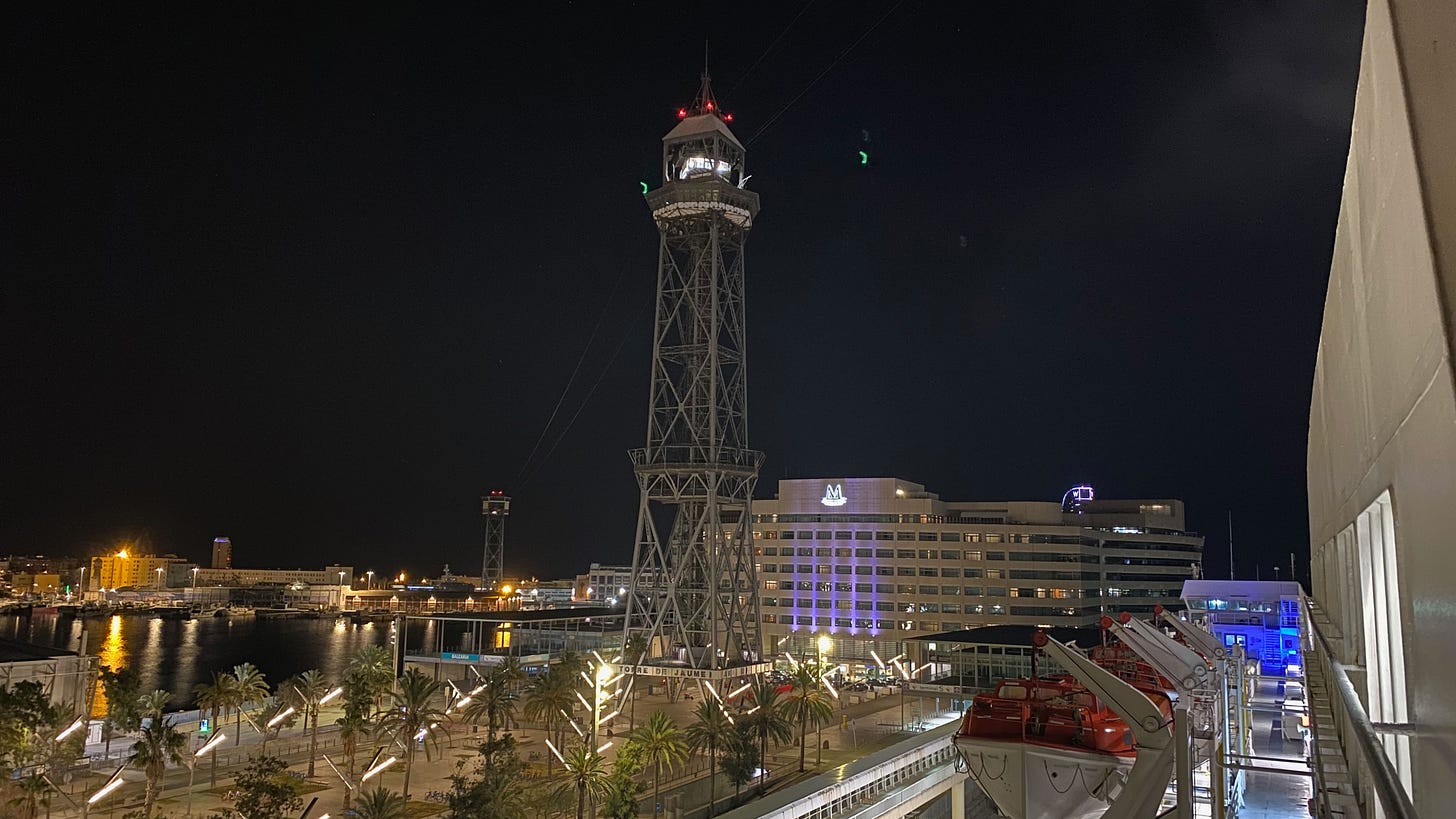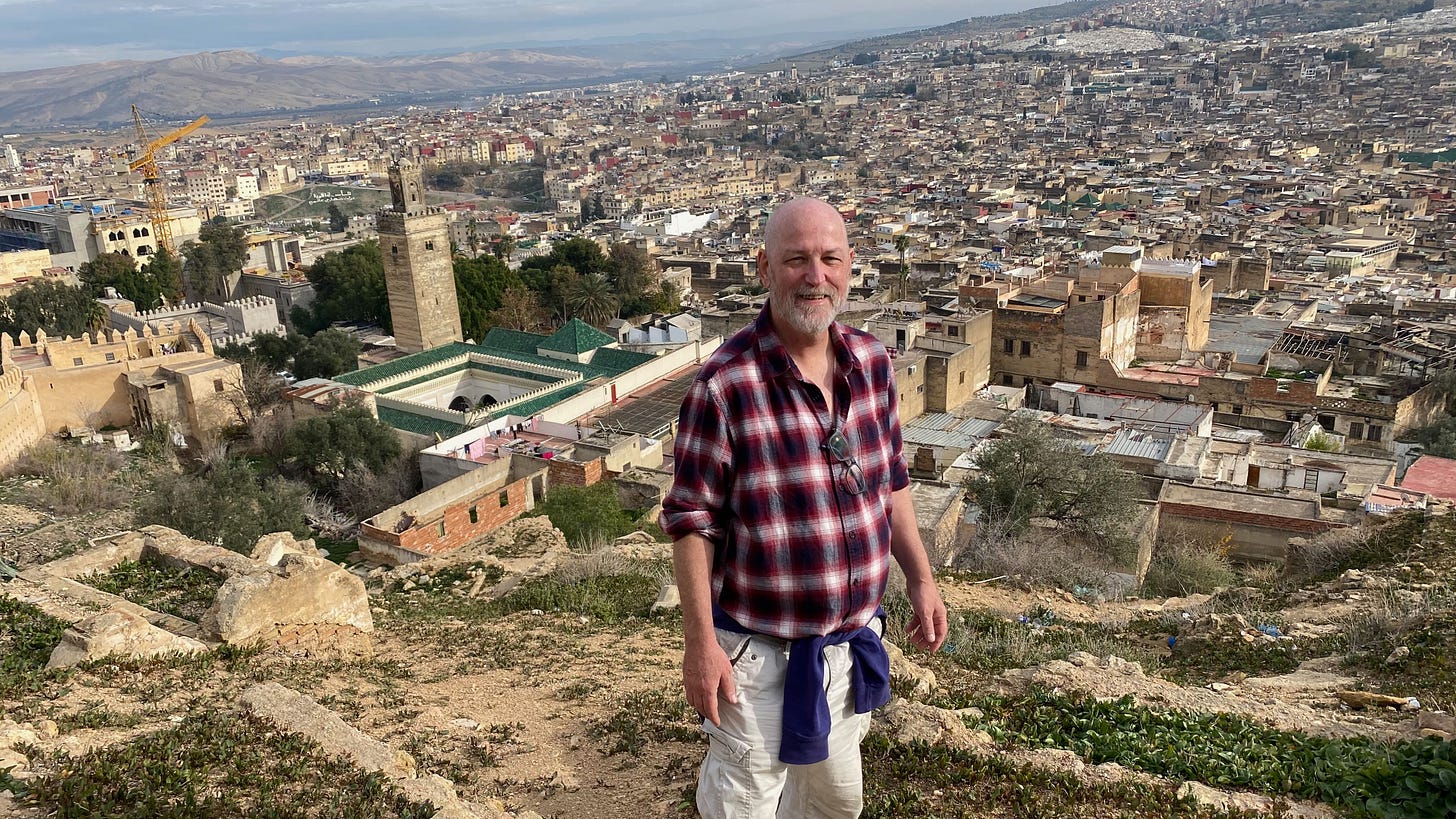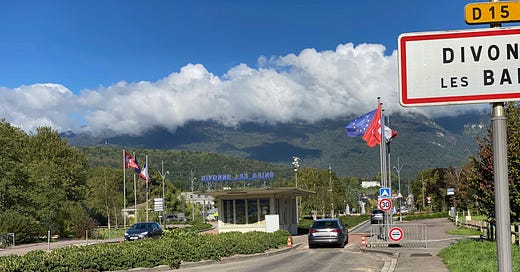Every story needs a middle
My travels have taken me to four countries and half of France's European regions. I'll finish the grande tournée on the Atlantic coast in June. But what to do 'til then?
Toulouse, Moissac, Lyon, Geneva, Montpellier, Sête, Strasbourg, Paris, Casablanca, Marrakech, Essaouira, Fès, Nador, Bucharest. Fourteen cities in four countries in 28 weeks. That’s my itinerary to date, excluding any city or village where I spent less than a day.
Lately I’ve been on a long, 5-week pit stop back in Toulouse, recharging my batteries and figuring the next steps for both my travel plans and my future. I’m in Europe on a French long-stay visa that will expire in June. It’s a Schengen visa, meaning I have the right to travel to any of the 27 European countries that are part of the Schengen area agreement, but France is recognized as my home country, the one where I have to spend the majority of my time.
I now have two options: a) extend the visa by applying for a residence permit at the local préfecture (French administrative office), or b) let the visa expire and return to Canada. Neither choice is ideal, unfortunately. And too complicated/boring to explain. The real decider in all this is actually Canadian rules regarding health insurance, which I’ll lose if I’m not back by June 29. You’re only allowed to spend six months outside the country in any calendar year if you want to remain insured in Canada. And that’s something I really don’t want to lose. Not until I’m ready to make a permanent jump to Europe.
⚜ ⚜ ⚜
That doesn’t mean I’m not emigrating to France, just that I’ll be returning home first and re-applying for a long-stay visa that will put me on track for a permanent residence permit. That was always the plan: this 9-month tour was intended to give me a taste of European living and let me shop around for the parts of France (or Morocco, Luxembourg, Belgium or Switzerland) I like best.

It didn’t make sense to me to commit to a move until I’d actually had a chance to travel and experience the people and cultures of Europe and North Africa. So that’s what I’ve been doing: shopping for a new home to replace my beloved Montréal.
The common factor in all these is that I want to live somewhere where I’m surrounded by French, but where speaking English is seen as an asset, not as a communicable disease. That’s unfortunately not the case anymore with the anti-English, anti-immigrant, anti-Muslim stance of the current Coalition avenir du Québec government, which sees all cultures that don’t fit into a cookie-cutter version of a “vrais” québécois as something to be eradicated, erased or pushed out. The Parti québécois, which looks like it will beat CAQ handily in the next election, is a milder forum for the same kind of ethnic nationalism, which caters its base by demonizing those who are different.
Now I’m not suggesting that France, or Europe in general, is immune to ethnic nationalism or anti-immigrant, anti-semitic or anti-muslim politics. With radical-right parties ruling in Italy, Hungary, Holland, Poland and Finland and forming large blocs in Switzerland, Finland and Sweden, I sometimes feel that moving to Europe is like switching from plain to menthol cigarettes. Either is a killer, but one feels fresher and goes down a little easier.
Seriously, the real difference between Europe and North America is that most Europeans seem to appreciate the value of speaking more than one language. Two-thirds here speak at least two languages and in the Nordic countries the rate is over 90%. In the U.S. it’s 20%, in Canada it’s just 35%, or 18% if you only look at English-French bilingualism.
French president Emmanuel Macron, speaking in Paris six years ago, put it this way (as translated by the Globe & Mail): “I am not among the grouchy defenders of the French language. I am an ambitious and swashbuckling defender. So I never hesitate to express myself in French, in the language of a host country or in English on the international scene … it reinforces the francophonie, and that French is not a besieged language."
In Québec, French is treated like a language besieged from without—by signs, by anglicisms, by anglophone students speaking English on the streets—when the true siege is taking place in French-language schools, which can’t even find enough qualified teachers. French literacy rates are actually higher in Montréal, with its high percentage of anglophones and immigrants, than in rural Québec, where both anglos and immigrants are much rarer.
Anyway, the language debate in Québec has gone off the rails in the last decade, with the promotion of French taking a back seat to sensationalism and vindictive public repression of English and English-language institutions. As an anglophone who has always adapted to, adopted and, yes, embraced efforts to establish French as the working language of Québec, I can’t take the petty level of today’s public discourse, where the National Assembly interrupts its important work to unanimously adopt an urgent resolution asking Montréal merchants to please stop greeting customers with “bonjour-hi,” and the government restricts access to existing English services.
The slogan of the Québec government now seems to be “bonjour-bye.”
Sigh.
⚜ ⚜ ⚜

Okay, back to travel news.
I’ve figured out the end of my European sojourn, which should take me through Luxembourg and Belgium, then the French coastal regions of Normandie, Bretagne, La Loire and Nouvelle Aquitaine. It will end in the village of Saintes (can’t get more secular than that!), where I’ll be house/cat sitting for a friend for three weeks. It will give me a taste of true country living and a base to explore the countryside from La Rochelle to Bordeaux. After that, it’s back to Toulouse and a flight back to Montréal to settle my affairs.
Now I just have to figure out what to do from now to then. Where would you go?
See you next week!






Hi Peter, this is a quite serious newsletter — changing country in mature age.
It is sad what you describe with the fight between French and English in Quebec. I hear the greeting “bonjour-hi” as an offer to let the arriving customer decide whether to use either French or English, so it is a clever greeting. It is sad that there is political ill-will towards it.
When I enter a shop in for example Spain I will always negotiate the language by asking “Do you speak English?”. Even if I get the answer “No” we have reached a common understanding and I will continue in bad Spanish. In for example Romania one cannot expect anybody to speak neither English, French nor German, so I will ask politely in Hungarian “Tetszik magyarul beszélni?”. That is risky, because many Romanians have an ill-will towards Hungarians and the Hungarian language.
Last time I visited Paris I was quite amused by the widespread use of “destockage” — a very French word with an English word in the middle.
BTW: Bill Bryson has some clever considerations of the English-Spanish relation in the United States in his book Mother Tongue. In his point of view there is no need for laws supporting the English language. I recommend that book — actually it is the only one of his books that I like.
So hey Pete- so happy that you embarked on this Odyssean journey. So my husband is from Brittany - the Morbihan region. Concarneau, Loctudy, Benodet, Point du Raz, there is also a place where the tides come in quite low -I think it's st anne. the town of Quimper - finally Lorient. An absolute gem of an island. is BELLE ISLE. Enjoy.